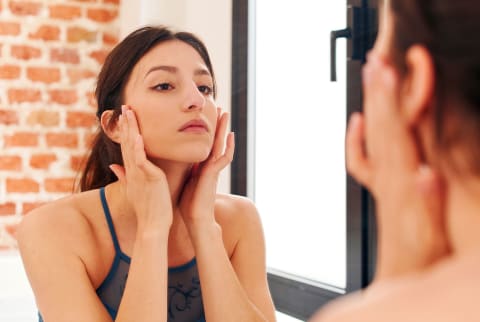To keep it quick and simple, we’re sharing three factors that directly contribute to your collagen production—the key to maintaining healthy skin for the long haul, both in terms of look and feel: “Excessive alcohol consumption can increase the production of free radicals,” internal medicine physician Russell Jaffe, M.D., Ph.D., CCN, once told mbg. It also diminishes antioxidants in the body, making it harder for your body (and your skin) to defend itself. As a result, oxidative stress and inflammation become exacerbated, says Jaffe. But how does this impact collagen? Well, oxidative stress can take a toll on your existing collagen when chronically activated. It also decreases the ability of fibroblasts, a type of cell that produces type I collagen. (This kind of collagen is the most abundant protein1 in the body.) Not to mention, excessive alcohol intake can disrupt the absorption of vitamin C, further contributing to poor collagen synthesis. The main benefit? Promoting your natural collagen and elastin production2. This is key for aging skin, as research shows your collagen levels begin to decline by 1% each year2, starting around your mid-20s. However, not all collagen supplements will work the same. Most of the promising research on this topic comes from hydrolyzed collagen peptides specifically, so make sure you check that off the list when you shop—here are nine glowing recommendations, all backed by a nutrition Ph.D. Not to mention, that spike in cortisol might even trigger breakouts. See, this spike manifests into more sebum production and, thus, more breakouts. Even if you don’t typically have acne-prone skin, a lack of sleep can contribute to what dermatologists refer to as “occasional acne4.” All that to say: Use this time to prioritize high-quality shut-eye! (If you need some help, check out our favorite natural sleep aids.) In addition to getting a good snooze, you might want to mind your caffeine intake. Studies show that consuming a dose of caffeine (specifically 400 mg5 in this study) up to six hours before bedtime has “important disruptive effects” on your sleep in addition to having trouble falling asleep. The study demonstrates a link between that caffeine buzz and interrupted sleep as well.



